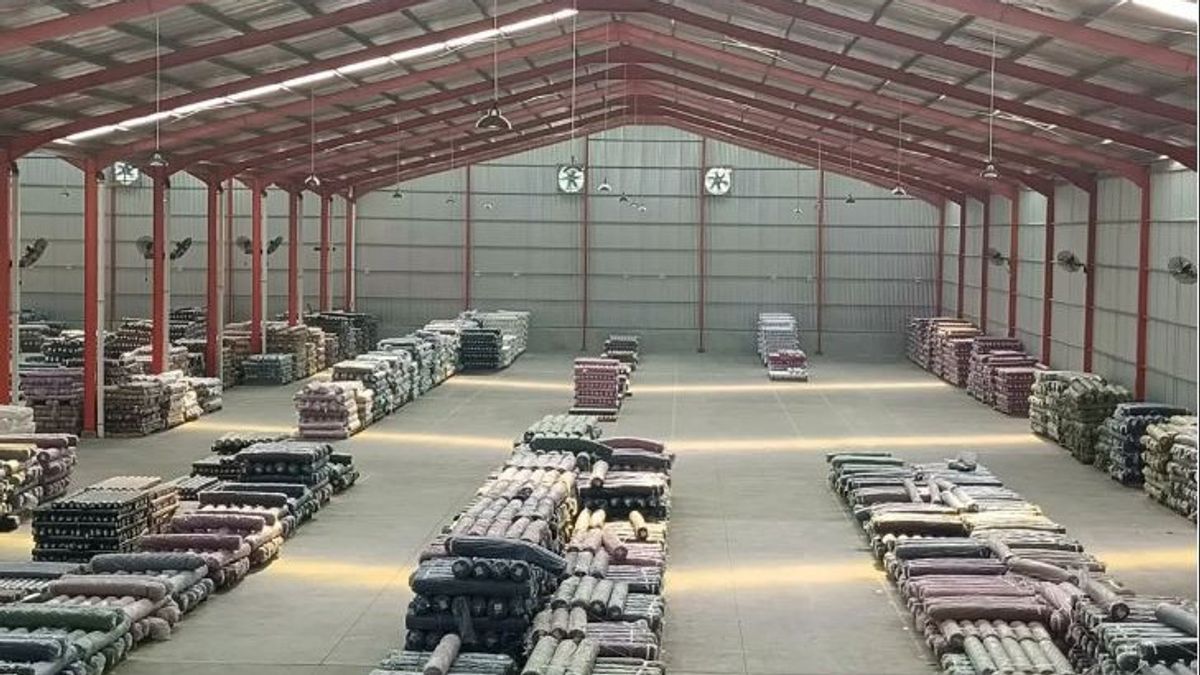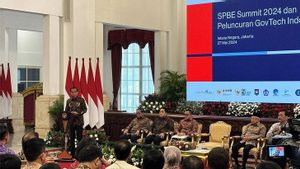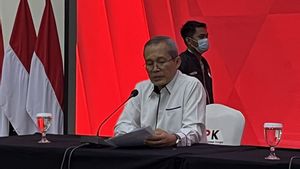JAKARTA The condition of the textile industry in Indonesia is increasingly concerning, as can be seen from the tsunami termination of employment (PHK) that occurred in this industry. The trend of layoffs is predicted to continue for the next two years.
President of the Confederation of Nusantara Trade Unions (KSPN) Ristadi said as many as 13,800 workers in the textile industry have been laid off since early 2024.
Ristadi explained, this was due to declining export demand while local markets were also flooded with imported products at lower prices.
"From the data we collected slightly in the period January to early June 2024, at least six Textile and Textile Products (TPT) companies were closed and four carried out layoff efficiency, a total of 13,800 workers were laid off," said Ristadi.
The invasion of imported goods is considered to have eroded local products in the domestic market. In fact, export pressure is also not as expected, thus adding to the heavy burden of domestic textile entrepreneurs.
Executive Director of the Center of Economic and Law Studies (Celios) Bhima Yudhistira said the sluggishness of the textile industry occurred because import regulations in Indonesia were uncertain. As long as this continues, Bhima predicts that the wave of layoffs in this institute will continue until 2026.
Hundreds of Indonesian textile workers took action on the streets around the National Monument (Monas) area on Thursday (27/6/2024). They voiced aspirations regarding the increasingly worrying condition of the textile industry.
The condition of the textile industry has been sluggish for at least the last two years. But Ristadi said this ulcer had actually been going on since 2010, when imported goods began to invade Indonesia.
From year to year, imports continued to increase and the peak occurred in 2015, 2016, then 2018 and continues to grow until now.
This is also acknowledged by Bhima Yudhistira as Executive Director of the Center of Economic and Law Studies (Celios). He said the decline in competitiveness in the manufacturing industry was the culprit for the number of textile factories in Indonesia that had fallen.
SEE ALSO:
"It can be seen from the many relocations of clothing brand-brand factories to Vietnam, Bangladesh, and even Ethiopia because they see that doing business in Indonesia is relatively expensive," Bhima said when contacted by VOI.
In addition, Bhima also highlighted the government's alignment with the manufacturing industry, which he said was still in doubt. According to him, government policies are still inconsistent and tend to jump.
Bhima gave an example when the government pushed down the downstream nickel, even though the problems in the finished clothing and footwear industry were not really finished.
"The government does not have a focus and manufacturing industry such as losing stimulus and incentives from the government," he said.
According to data compiled by KSPN, it turns out that the textile factory has started to fall since 2019. Ristadi revealed that 36 large medium textile companies were closed and 31 other factories were laid off due to efficiency.
According to Ristadi, the invasion of imported goods was the main cause of the collapse of the domestic TPT industry. Textile goods imports continue to increase as the textile industry grows from abroad, especially China.
As a result, he continued, domestic textile factories began to experience production instabilities, and continued to decline. Until then triggered a wave of layoffs.
In total there are 198,769 workers who have become victims of layoffs from these 67 companies, and will continue to grow. This data is only from factories where our members work, not including government data and Apindo," said Ristadi.
Meanwhile, according to Bhima, from the point of view of the manufacturing industry, they are also pressured by imported goods, both from the legal route and the rat route' where goods sold imported, both in retail and e-commerce, are very cheap, thus harming domestic business actors.
"This makes incentives into importers and resellers bigger than being producers of the processing industry," explained Bhima.
He also added several other factors that make it difficult for the domestic textile industry to survive, namely high interest rates, people's purchasing power - especially the middle class low, and the rupiah exchange rate to weaken which makes the cost of raw materials that are partly imported very expensive.
"These factors will make the processing industry fall and the wave of layoffs will occur for the next two years if there is no significant improvement in terms of government policies that favor the domestic industry," he concluded.
The English, Chinese, Japanese, Arabic, and French versions are automatically generated by the AI. So there may still be inaccuracies in translating, please always see Indonesian as our main language. (system supported by DigitalSiber.id)

















